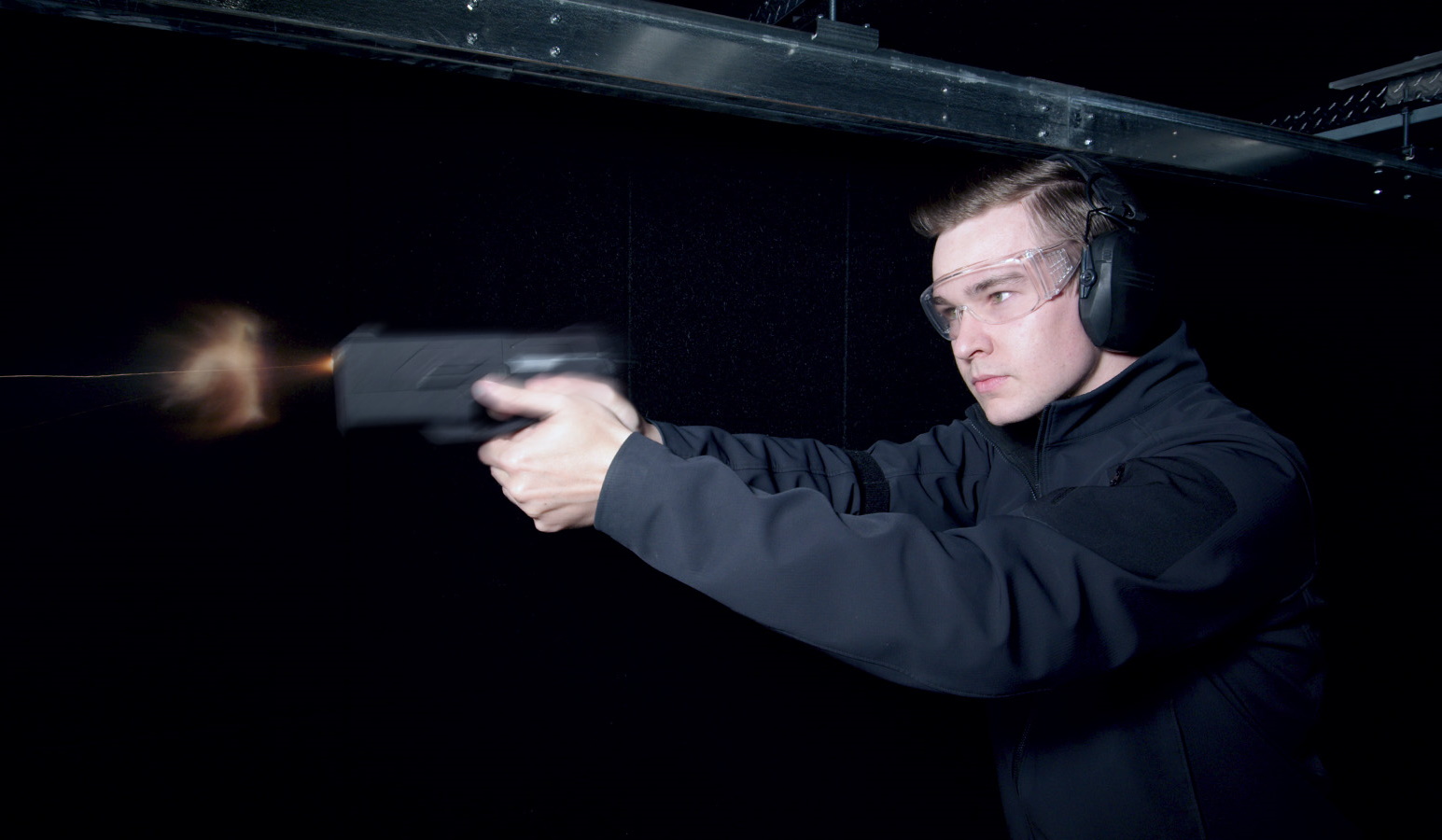The last thing we need in this world is more guns. But we’re getting them whether we like it or not, so wouldn’t it be nice if those guns had safety mechanisms like our phones, making them impossible for anyone but their owners to use? That’s what Biofire is building, and it has raised $17 million to finalize and commercialize its biometric-secured firearm.
Founder Kai Kloepfer said he began looking into the idea after the Aurora mass shooting in 2012.
“I started to think, what could I possibly do to have an impact on this? How can I apply product building skills to what would appear to be a public health challenge? The problem of children and teens finding guns, accidents and suicides — that was the place where I really saw tech and a physical, product-based solution having an impact,” he said.
Let’s be clear on something first. A gun that only the shooter can use could hardly have prevented most mass shootings. Gun ownership is also closely correlated with suicide, increasing risk in almost every way. Guns themselves are fundamentally at the heart of gun violence, but it must also be acknowledged that there have been precious few advances in safety and restrictions in recent years despite countless shootings and constant debate on the issue.
Of course there are locks out there already: trigger locks, gun safes and things like that. But as Kloepfer pointed out, “all those require human action to re-secure the gun — and sometimes that’s not feasible.” Those could be situations where the gun is taken away from a person, or the much more likely occurrence of simply forgetting or neglecting to lock it up.
“So we thought of something that’s very simple. You pick it up, it unlocks, it stays unlocked for as long as you hold it, and when you put it down it locks again within a fraction of a second,” he said.
The team was assembled from a variety of industries where reliability is key, like aerospace and the military. Then they set about building a firearm with a “true ground up approach. We’ve really gone back to the drawing board,” as he put it.
This is because, though there is of course deep expertise out there in building reliable firearms, none has ever integrated biometrics and smart capabilities this deeply. There are conversion kits out there and of course biometric trigger locks, but ultimately it’s an ordinary gun with a fancy lock on it. The point here is to build the locking mechanism in at the most basic level.
Kloepfer was careful to add that this isn’t a “smart gun” in the sense of many other “smart” objects like fridges and TVs, which have all kinds of unnecessary digital additions and opportunities to fail or be hacked. So while the gun has modern electronics built into it, they are all in service of the locking mechanism and the user will ideally never even have to think about it.

“Obviously this is an electronic device, so it has an internal battery,” he said. “But we’ve designed the system such that the vast majority of customers, probably 99%, will never have to think about the battery — charging it, discharging it. And user privacy is top priority — the gun has no RF communications of any kind. It’s a complete, hardened system with one hardened interface port.”
No doubt this last aspect is as much a concession to gun owners, who would balk at the idea of a gun able to be disabled wirelessly, as it is to a security team that understands that such protocols only increase the attack surface of a truly safety-critical device.
Images of the firearm show a fingerprint sensor on the left side of the grip, where the user would place their thumb (it looks as if lefties are out of luck for now). When I asked for more details on the security and authentication methods, Kloepfer said that the company is still finalizing them, and declined to comment beyond generalities.
“The engineering work to do this is not trivial, but we’re happy about where we’re at. We can’t share numbers because we’re in the middle of testing. You can’t shortcut that,” he said, noting the company was entering a private beta program with owners, military and law enforcement, and cybersecurity experts before launching the device. “Biofire’s goal is to do this one thing perfectly — we’re not looking to build a defense company. This is the problem, and we don’t want to release a product until we’ve hit all of those milestones. This lets us engage in a quantitative rather than qualitative dialogue with our customers.”

Frankly, reticence to discuss crucial systems at this stage is a little worrying. It’s difficult to imagine that more measures could be added at this point, since the firearm is clearly at an advanced enough stage that it can be provided to testing partners. But I was repeatedly told that the company would not share any more details about the mechanisms or how they work.
That’s something of a red flag, to be sure, but one also has to consider the confidence of investors, who have clearly seen enough to put $17 million toward the system’s completion. It’s possible but unlikely that a truly “beta” system, or one that is not meeting its goal of instant and reliable locking and locking, would attract that level of funding. (Investor confidence is not sufficient or necessary to cancel anyone’s skepticism, of course, and they are not infrequently duped — I just didn’t get that sense here.)
Nevertheless, the ambition of taking on torpid and culpable firearm manufacturers in the name of safety is, at the very least, newsworthy. As we have seen in other, less controversial domains, it often takes a small and disruptive force to shake legacy industries out of their preconceptions on what is possible and desirable. Should Biofire prove out what it claims to have built, there will be good reason to question why other firearm producers either failed or didn’t bother to try over the last few decades.
Innovation and tech may yet have a role to play in the arena of gun violence, not as a panacea but simply as one of many layers of control and safety that ensure firearms are used legally and personally.
The list of investors who agree is quite long, it seems — Biofire found “bipartisan support” from more than 50 VCs, family offices and assorted wealthy people, including Ron Conway and Gavin de Becker. Though the only one joining the board is Lt. General Guy C. Swan (ret.), who reiterated in a press release that the company won’t launch the product until it’s ready.































Comment